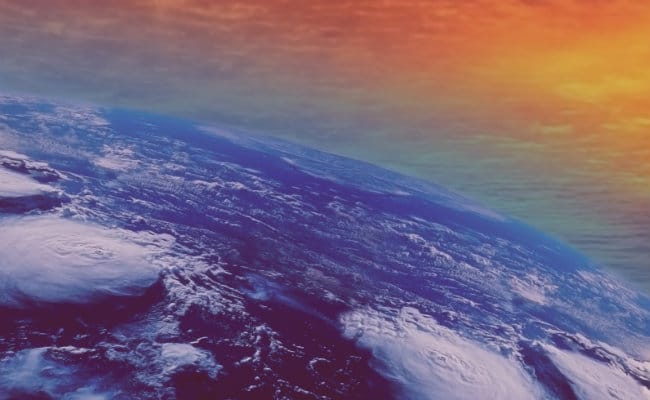This is the gradual heating of the surface, Earth's oceans and atmosphere, and is caused by human activity, primarily the burning of fossil fuels that pump carbon dioxide (CO2), methane, and other greenhouse gases into the atmosphere.
This phenomenon is already having significant and costly effects on our communities, on health and on the climate. Therefore, if immediate measures are not taken to reduce emissions, this impact will continue to intensify, growing more and more and becoming more harmful.
Consequences of climate change

Increase in average temperature and extreme temperatures
One of the most immediate and obvious effects is rising temperatures around the world. The planet's average temperature has increased by about 1,4 degrees Fahrenheit (0,8 degrees Celsius) over the past 100 years, according to the National Oceanic and Atmospheric Administration (NOAA).
Rising seas and coastal flooding
The rate of sea level rise is accelerating, which increases the risk of flooding low-lying communities and high-risk coastal properties.
Longer and more damaging wildfire seasons
High spring and summer temperatures are the result of spring thaw in forests that are warmer and drier for longer periods of time.
Most destructive hurricanes
Although hurricanes are a natural part of our climate system, they are still part of the consequences of global warming. Recent research indicates that its destructive power, or intensity, has been growing since the 1970s.
More frequent and intense heat waves
Dangerously hot weather is already happening more frequently than it did 60 years ago, and scientists hope that heat waves could become more frequent and severe as climate change intensifies. East increased heat waves creates serious health risks, and can lead to heat exhaustion, heat stroke, and aggravate existing medical conditions.
Widespread death of forests in the Rocky Mountains
Tens of millions of trees have died in the Rocky Mountains in the past 15 years, victims of a triple climate assault fueled by tree-killing insects, wildfires, and heat stress and drought.
Costly and growing health impacts
Climate change has important implications for our health. Rising temperatures will likely lead to increased air pollution, a longer and more intense allergy season, the spread of insect-borne diseases, more frequent and dangerous heat waves, and heavier rains and floods. All these consequences of global warming pose serious and costly risks to public health.
Intense droughts in some parts of the planet.
Climate change affects a variety of factors associated with drought and the risk of drought is likely to increase in some regions. As temperatures have warmed, the prevalence and duration of droughts has increased.

Melting ice
Temperatures are rising in the polar regions of the planet, especially in the Arctic, and the vast majority of the world's glaciers are melting faster than the new snow. Scientists hope that the melting rate will accelerate, with dire consequences for future sea level rise.
Increasing risks to our electricity supply.
Our aging electrical infrastructure is increasingly vulnerable to rising consequences of global warming, including rising sea levels, extreme heat, elevated wildfire risk, and drought and other water supply problems.
Destruction of coral reefs
As global temperature increases, so do average sea surface temperatures. These elevated temperatures cause long-term damage to coral reefs. Scientists have documented that sustained water temperatures of just one degree Celsius above normal summer highs can cause irreversible damage.
Changes in plants and animals
A changing climate affects the range of plants and animals, changing their behavior and causing disruptions up and down the food chain. The range of some warm climate species will expand, while those that depend on colder environments will face reduced habitats and potential extinction.
Are the consequences really that bad?
The answer to this question is undoubtedly Yes! Even a seemingly slight increase in average temperature is enough to cause a dramatic transformation of our planet.
It might not sound like much, maybe the difference between wearing a sweater and not wearing one on a day in early spring. Yet for the world we live in, experts project about eight degrees warmer by 2100 if global emissions continue on their current path. This small rise is going to have serious consequences, which is becoming increasingly evident.
We must know that human influences are the main cause of global warming, especially the carbon pollution caused by the burning of fossil fuels and the capture pollution through the destruction of forests. Carbon dioxide, methane, soot, and other pollutants that are released and take up the atmosphere like a blanket, trapping the sun's heat and making the planet warmer.
The evidence shows that the year 2000 to 2009 was hotter than any other decade in at least the last 1.300 years. This warming is altering the Earth's climate system, including the atmosphere, oceans, and ice, in far-reaching ways.
We cannot ignore these and others consequences of global warming. If humans are the main causes of this phenomenon, we must be the ones to solve the problem.